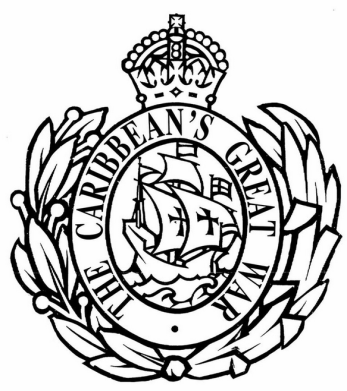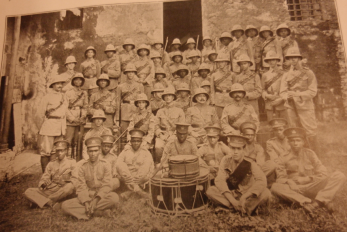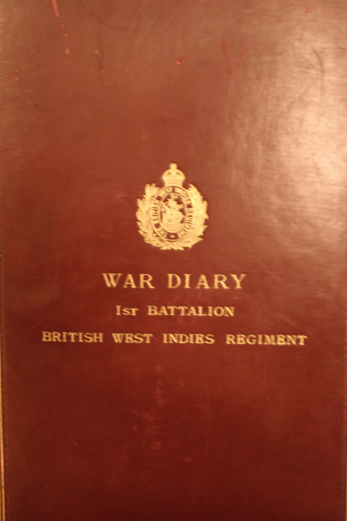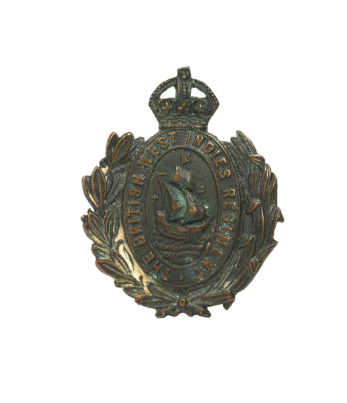 The Caribbean’s Great War is a Heritage Lottery funded project that aims to highlight the involvement of the Caribbean and her people in the First World War. The project will focus on the operations of the British West Indies Regiment, a group of 16,000 volunteers from the region who fought in Egypt, Palestine, Iraq and on the Western Front in France. By using the unique resources found in The West India Committee archives, the organisations involved hope to encourage greater understanding of the regiment, the region’s contribution during the period, and develop a deeper understanding of the millions of men and women from the Commonwealth who contributed to the Allied victory of 1918.
The Caribbean’s Great War is a Heritage Lottery funded project that aims to highlight the involvement of the Caribbean and her people in the First World War. The project will focus on the operations of the British West Indies Regiment, a group of 16,000 volunteers from the region who fought in Egypt, Palestine, Iraq and on the Western Front in France. By using the unique resources found in The West India Committee archives, the organisations involved hope to encourage greater understanding of the regiment, the region’s contribution during the period, and develop a deeper understanding of the millions of men and women from the Commonwealth who contributed to the Allied victory of 1918.
With the support of the Heritage Lottery Fund, The Caribbean’s Great War project has been able to build strong links with several established institutions. These include: the Commonwealth War Graves Commission, the Museum of London Docklands, the National Army Museum, the Royal Artillery Museum, the British Army and the Department for Culture, Media and Sport. The aim of all is to create a concerted effort to share with the general public this hitherto hidden heritage. The project will be an appropriate reflection of the service of the British West Indies Regiment.
In 1941 the German Luftwaffe bombed London extensively, and unfortunately British Army records on the First World War were destroyed in the subsequent fires. Since the British West Indies Regiment was a part of the British Army proper, details of their service were also ruined. The Caribbean’s Great War project will share its extensive archive and collection via a free, online gallery where users can access content relevant to the period. The legacy of the Regiment lives in The West India Committee archive, and its dissemination is imperative for the centenary.
The project will culminate in an exhibition at the Museum of London Docklands, where the Committee and the museum will attempt to as accurately as possible tell the story of the First World War from a West Indian perspective. Alongside the exhibition and the digitising of the collection, the Committee intends to share online Frank Cundall’s Jamaica’s Part in the Great War, published by the organisation in 1925. This work has become one of the leading pieces on the subject and has been the starting point for researchers for nearly a century.
Learning aids such as posters will be produced to encourage interest and would include material helpful to teachers. The promotion of learning is a central objective of the project, and an eBook will also be written to accompany the physical content. London Scottish Regiment will be the site of an event to mark the contributions of the soldiers where volunteers from London will have a chance to interact with the scheme. A short film will be produced to accompany the deliverables; this will give viewers insight into the processes of the project.
The goal of The West India Committee and all partners involved is to accurately and respectfully reflect the contributions of the 16,000 men of the British West Indies Regiment, highlight the support of the Caribbean to the war effort and thus share this overlooked piece of history.
A new website for the project, featuring the online gallery and archive, will be up and running by the summer of this year. The exhibition will run from October at the Museum of London Docklands.



